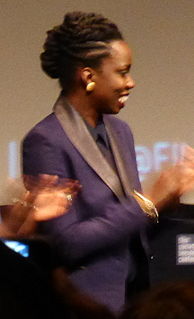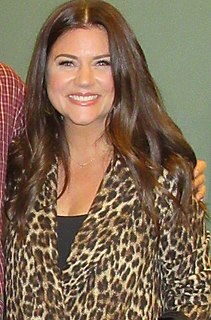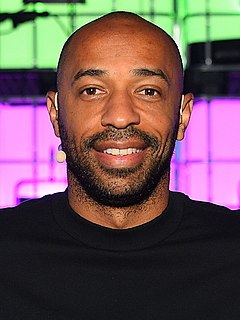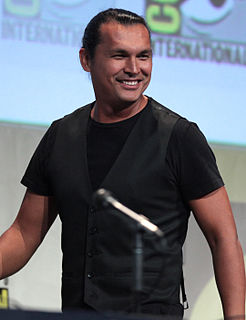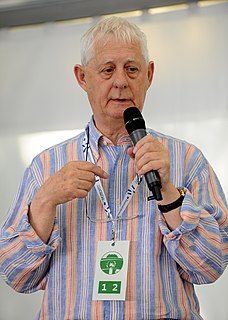A Quote by Adepero Oduye
I grew up in New York and I've always lived here, so I look at myself as a regular person. When somebody recognizes me from the film - and it can be a wide range of people, which shows the power of film - I feel like they're talking about someone else we both know. I just find it hard to believe that anyone would stop me to share how much they loved something that I was a part of.
Quote Topics
About
Always
Anyone
Believe
Both
Else
Feel
Film
Find
Grew
Grew Up
Hard
Hard To Believe
How
How Much
Just
Know
Like
Lived
Look
Loved
Me
Much
Myself
New
New York
Part
People
Person
Power
Range
Regular
Regular Person
Share
Shows
Somebody
Someone
Something
Stop
Talking
Talking About Someone
Up
Which
Wide
Wide Range
Would
York
Related Quotes
I'm able to lead my life as well as make a film. My wife and my friends and people around me know that I do tend to distance myself a little bit during the making of a film, but I have to, it's a natural part of the process for me because you are indulging in the headspace of somebody else, you are investing in the psychology of somebody else and you are becoming somebody else, and so there isn't enough room for you and that somebody else.
Isn't it splendid to think of all the things there are to find out about? It just makes me feel glad to be alive--it's such an interesting world. It wouldn't be half so interesting if we know all about everything, would it? There'd be no scope for imagination then, would there?But am I talking too much? People are always telling me I do. Would you rather I didn't talk? If you say so I'll stop. I can STOP when I make up my mind to it, although it's difficult.
I've always loved film more than theater, and film may be more closely related to making a record because you have that ability to go in and do your work and have no judgment around it, and feel honest. Then, much later, it's presented to people. But in theater, people come backstage after a performance and you're about to do the same play again the next night, and people say, "Well, I didn't really believe that emotion" or whatever. It's really hard for me, I like to be closed up and just do the work.
I think so much of a director's job is just to convince you that what you're doing is worthwhile. "Yes, this does mean something, we're not just messing around." Even though at the end of the day it's a film. But at the time it's something else. I don't feel like I'm making a film, I'm confronting things in myself. I don't know what it is. So if someone is enthusiastic enough to convince you that it's important it's kind of magical.
I think there's definitely much more opportunities for women now to find a role in 30s and 40s both. I think you're starting to find people really seeing that - here's the thing. It's hard for me to say and know the experience how it was ten, twenty years ago because I was only in my teens and my 20s, but I know from watching TV myself and watching film myself I see a lot more 30s and 40s on screen, which just makes me very, very happy. It's what we should be watching.
I went back to Jamaica after living in New York and started to work on experimental stuff and basically I grew as a filmmaker. I went to film school; I was a PA on a lot of projects and I worked so hard, you know, you're young and I learned from different mentors. And luck put me in the position to work with amazing people. One of my mentors by the name of Little X, who took me under his wing after I came out of film school and moved to New York. I worked in videos for Jay-Z, Pharrell to Busta Rhymes and Wyclef. I quickly realized how much I wanted to make films instead of music videos.
I was at the New York Film Critics Circle Awards one year - they called me up when somebody canceled two days before the thing, and asked me to present some awards. So I went, and one of the funniest film moments I've ever had was when they introduced the New York film critics. They all stood up - motley isn't the word for that group. Everybody had some sort of vision problem, some sort of damage - I had to bury myself in my napkin.
I have three boys. And I wanted to make sure it connected with them and then those guys who grew up like me, in environments like me.And then I knew something about science that your New York Times reader would be interested in. So I was thinking about it in multiple ways: I'll connect with the people who grew up like me first, and then the New York Times reader will be interested in the science because it's so good and they want to be "in the know."
I've always loved New York; I've been visiting New York since 1996. People don't look at you like, 'What are you doing? What are you wearing?' There is also that thing that when people know that you have worked hard to get something, people have that respect for that here. You worked hard - good for you.
I have skipped from style to style from film to film, and I love doing that because it's given me the ability to free myself from the past. Perhaps one of the worst feelings that I can have is the feeling that I'm locked in, like a prisoner of myself, which is something we all feel at some point in our lives. So part of making those stylistic jumps is just to free myself up-to get away from the old or the old Oliver Stone.
How do I think of you? As someone I want to be with. As someone as young as me, but "older," if that makes sense. As someone I like to look at, not just because you're good to look at, but because just looking at you makes me smile and feel happier. As someone who knows her mind and who I envy for that. As someone who is strong in herself without seeming to need anyone else to help her. As someone who makes me thinks and unsettles me in a way that makes me feel more alive.
You're not like the others. I've seen a few; I know. When I talk, you look at me. When I said something about the moon, you looked at the moon, last night. The others would never do that. The others would walk off and leave me talking. Or threaten me. No one has time any more for anyone else. You're one of the few who put up with me. That's why I think it's so strange you're a fireman, it just doesn't seem right for you, somehow.
